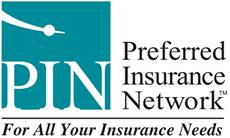When it comes to reducing your auto insurance premium without compromising coverage, there are several strategic steps you can take. It all starts with a careful evaluation of your current policy to pinpoint areas where adjustments can be made. By exploring various avenues such as policy discounts and deductible modifications, you can potentially unlock significant savings. But, there’s one crucial element that often gets overlooked, a simple yet impactful factor that could make a notable difference in your premiums.
Key Takeaways
- Consider dropping comprehensive/collision on older cars.
- Maintain comprehensive for new/valuable vehicles.
- Shop around for quotes from different insurers.
- Increase deductibles for potential premium savings.
- Take advantage of applicable discounts for lower premiums.
Evaluate Your Coverage Needs
If you’re looking to lower your auto insurance premiums, the first step is to evaluate your coverage needs.
Take a close look at your current policy and consider factors like the age and condition of your vehicle, your driving habits, and your financial situation. If you have an older car with a low market value, you may want to consider dropping comprehensive and collision coverage to save on premiums.
However, if you have a new or valuable vehicle, it’s wise to maintain comprehensive coverage for financial protection in case of accidents or theft.
Additionally, assess your liability coverage to ensure you have adequate protection in case of an at-fault accident. Increasing your deductibles can also lead to lower premiums, but be sure you can afford to pay the higher deductible if needed.
Shop Around for Quotes
To effectively reduce your auto insurance premiums, it’s crucial to shop around for quotes from various insurance providers. Different companies offer different rates, so comparing quotes can help you find the most affordable option while maintaining adequate coverage.
Start by researching reputable insurance companies either online or by contacting local agents. Provide each insurer with the same information about your vehicle, driving history, and coverage needs to ensure accurate quotes.
When requesting quotes, inquire about any discounts that may apply to you, such as safe driver discounts, multi-policy discounts, or discounts for certain safety features on your vehicle.
Be sure to ask about any additional fees or charges that may impact the total cost of your premium. Take note of each insurer’s customer service reputation and the ease of the claims process, as these factors can be crucial in the event of an accident.
Consider Increasing Deductibles
Consider increasing deductibles as a strategic way to lower your auto insurance premiums. When you opt for a higher deductible, you agree to pay more out of pocket before your insurance coverage kicks in. By taking on more financial responsibility in the event of a claim, insurance companies often reward you with lower premium rates.
Before making this decision, evaluate your financial situation to ensure you can comfortably afford the higher deductible if needed.
Increasing your deductibles can lead to significant savings on your premiums over time. However, it’s essential to strike a balance that works for you financially. If you rarely make claims and have some savings set aside, raising your deductibles could be a smart move to reduce your insurance costs.
Take Advantage of Discounts
Maximizing your savings on auto insurance premiums can be as simple as taking advantage of discounts offered by insurance companies. Most insurance providers offer various discounts that can significantly reduce your overall premium costs.
Common discounts include safe driver discounts for maintaining a clean driving record, multi-policy discounts for bundling auto and home insurance, and good student discounts for young drivers with high academic achievements. Additionally, some companies offer discounts for safety features in your vehicle, such as anti-theft devices or anti-lock brakes.
Another way to save is by inquiring about loyalty discounts for sticking with the same insurance provider for an extended period. Some companies also offer discounts for military personnel or veterans.
Make sure to ask your insurance agent about all available discounts that you may qualify for. By taking advantage of these discounts, you can lower your auto insurance premium without sacrificing coverage.
Remember to review your policy regularly to ensure you’re benefiting from all available discounts.
Improve Your Credit Score
Lowering your auto insurance premiums can also be influenced by your credit score. Insurance companies often use credit-based insurance scores to assess the likelihood of a policyholder filing a claim. Improving your credit score can demonstrate to insurers that you’re financially responsible, potentially leading to lower premiums.
To enhance your credit score, make sure to pay your bills on time, keep your credit card balances low, and avoid opening unnecessary lines of credit. Regularly monitoring your credit report for errors and disputing any inaccuracies can also help boost your score.
Additionally, avoid closing old accounts, as they can contribute positively to your credit history. Taking these steps to improve your credit score not only benefits your overall financial health but can also lead to cost savings on your auto insurance premiums.
Drive Safely and Maintain a Clean Record
Driving safely and maintaining a clean record are crucial factors in keeping your auto insurance premiums affordable. Insurance companies often reward safe drivers with lower rates because they’re seen as less likely to be involved in accidents.
By following traffic laws, avoiding speeding tickets, and practicing defensive driving techniques, you can demonstrate to insurers that you’re a responsible driver, which can lead to savings on your premiums.
A clean driving record, free of accidents or traffic violations, is highly valued by insurance providers. Tickets for speeding or other infractions can cause your premiums to increase significantly.
If you have a history of accidents or claims, insurers may view you as a higher risk, resulting in higher premiums. By staying accident-free and maintaining a spotless driving record, you can qualify for discounts and lower rates on your auto insurance.
Frequently Asked Questions
Can Bundling Multiple Insurance Policies Lower My Auto Insurance Premium?
Bundling multiple insurance policies can often lower your auto insurance premium. Insurers may offer discounts for consolidating your coverage with them. It’s a convenient way to save money without sacrificing protection. Check with your provider for details.
Will Installing a Tracking Device in My Car Help Reduce My Premium?
Installing a tracking device in your car can help reduce your premium. The device monitors your driving habits, potentially leading to discounts for safe driving. Check with your insurance provider to see if this option is available.
Does the Type of Car I Drive Impact My Insurance Premium?
The type of car you drive does impact your insurance premium. Factors like the make, model, age, and safety features of your vehicle can affect the cost. Consider these when choosing a car.
Are There Discounts Available for Low-Mileage Drivers?
You can receive discounts as a low-mileage driver. Insurers offer reduced rates for driving less. Check with your provider to see if you qualify and start saving on your auto insurance premiums today.
How Does My Age and Driving Experience Affect My Insurance Rate?
Your age and driving experience significantly impact your insurance rate. Younger and less experienced drivers typically pay higher premiums due to higher risk levels. As you gain more experience and age, insurance rates may decrease.
Conclusion
In conclusion, by evaluating your coverage needs, shopping around for quotes, increasing deductibles, taking advantage of discounts, improving your credit score, and driving safely, you can lower your auto insurance premium without sacrificing coverage. Remember to review your policy regularly and make adjustments as needed to ensure you are getting the best rates possible. With these tips in mind, you can save money while still maintaining the protection you need on the road

